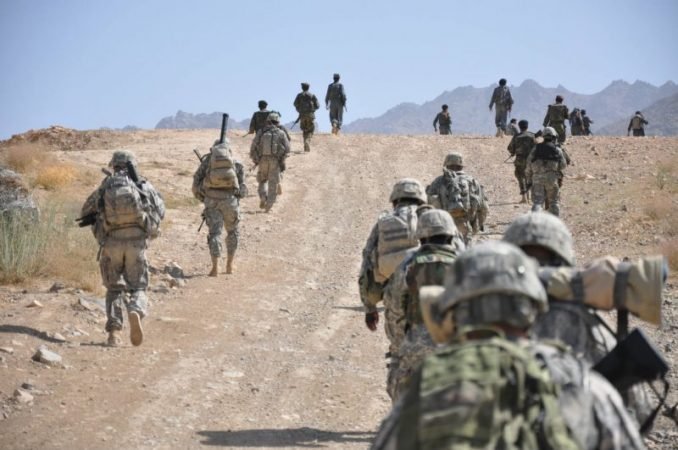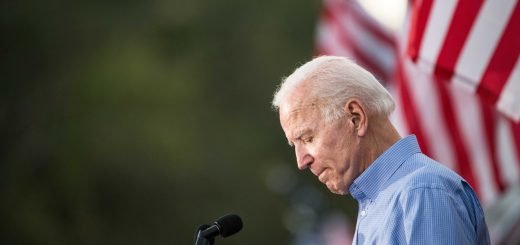Russian Bounties for Western Troops: Latest Episode in International Powers’ Tacit Support to Taliban

A US intelligence community assessment has concluded that the Russian intelligence paid bounties to Taliban-affiliated militants to kill the coalition forces in Afghanistan, including US personnel, The New York Times has reported, adding that President Trump has been briefed on this and the Trump administration has been deliberating for months on the US response to such an assessment.
It is understood the Russian intelligence unit involved is the infamous “Unit 29155”. The Times has reported: “Western intelligence officials say the unit, which has operated for more than a decade, has been charged by the Kremlin with carrying out a campaign to destabilize the West through subversion, sabotage and assassination. In addition to the 2018 poisoning, the unit was behind an attempted coup in Montenegro in 2016 and the poisoning of an arms manufacturer in Bulgaria a year earlier.”
It is not the first time that the Russians have been accused of being in league with the Taliban. In 2017, Afghan officials alleged Russia was supplying weapons to the Taliban and suggested Kabul to summon the Russian ambassador. The Guardian further reported Afghan officials alleging that Russian intelligence helped the Taliban capture Kunduz in 2015 and 2016.
In 2018, the head of US forces in Afghanistan, General John Nicholson, told BBC that he had seen “destabilising activity by the Russians” as per which they were “supporting and even supplying arms to the Taliban” in Afghanistan.
The British press has followed up on the story. Sky News has reported that the British personnel in Afghanistan were also the target of Russian-paid militants, adding that Prime Minister Boris Johnson has been briefed on this.

The story has created a political storm in the United States where the Trump administration has been accused of being soft on the Russians, with the Democrat presidential candidate Joe Biden slamming the Trump administration for not sanctioning Russia.
He said, “Not only has he failed to sanction or impose any kind of consequences on Russia for this egregious violation of international law, Donald Trump has continued his embarrassing campaign of deference and debasing himself before Vladimir Putin.”
President Trump has, however, denied being briefed on the subject, and has called the Times’s story false.
The understanding behind the Russian actions is two-fold. One, as The Guardian had reported in the story cited above, the Russian actions follow a pattern across the region where their actions have challenged the US interests in Libya, Turkey, Syria, and the Gulf. Two, Moscow is concerned by the proliferation of Islamist elements into Central Asia — at the Russian doorstep. So they are supporting the Taliban so that the group contains other globalist Islamist elements such as Al Qaeda and the Islamic State and prevents their proliferation towards Russia. Such an understanding of the Russian move has been there for some years.
In Gen. Nicholson’s interview to BBC cited above, he had said, “We see a narrative that’s being used that grossly exaggerates the number of Isis [Islamic State group] fighters here. This narrative then is used as a justification for the Russians to legitimise the actions of the Taliban and provide some degree of support to the Taliban. (sic)”
The idea is that, as The Kootneeti has previously reported regarding Islamist groups in Afghanistan, the Taliban is Afghanistan-oriented whereas groups like Al Qaeda and ISIS are world-oriented, and international forces have proiritised battling the globalist groups and have sought an arrangement with the Taliban as per this understanding. Even the United States has admitted to supporting the Taliban against ISIS.
Suggesting the US priority, Rear Admiral William Byrne, Vice Director on the Joint Chiefs of Staff, said on the same day, “I don’t have any specifics to provide you, but that’s the hope, in that: every force there is countering ISIS. Every force there is countering al Qaeda.”
In May 2020, The U.S. Special Envoy for Afghanistan Reconciliation Zalmay Khalilzad was quoted as saying, “We believe that ISIS and the Taliban are mortal enemies, and in the war against ISIS, Taliban have played an important role.”
In a recent interview with this writer, on the question of the United States and Russia partnering the Taliban against ISIS, irrespective of the repercussions for the Kabul administration, Kabir Taneja, a Fellow at the Observer Research Foundation, had suggested it was not a likely scenario.
He said, “I do not agree with such an assessment, but if the United States thinks that the level of medievalism and barbarity of the Taliban is acceptable enough for them to collaborate with them in attacking ISIS Khorasan, then that is their own strategic malaise. The theory of two wrongs making a right does not work in geopolitics, as we have seen from how the Taliban was conceived in itself.”


















